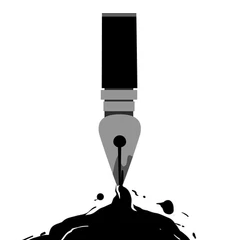

Ghost (1990)
Posthumous love transcends its pottery-wheel kitsch into genre-blending mastery: part romance, part thriller, part cosmic comedy, and all metaphysical yearning. Swayze’s unchained melody leads to Goldberg’s Oda Mae stealing every scene with perfect levity. Though there, plot issues be damned in the face of love’s victory over death! Its zeitgeist grip is earned and is indeed transcendent. Ditto.
La Collectionneuse (1967)
Gamine Haydée’s sexually-liberated presence fractures the languid hypocrisy of two “intellectuals” summering in ennui. Gallery-hopeful Adrien narrates in first-person deceit his moral superiority while coveting Haydée and his friend, sculptor and self-proclaimed barbarian Daniel mimics nonchalance with faux-libertine shrugs. Against their pompous barrage, her nightly routine soon evolves, left ambiguous by agency or mirror. Offering no verdict, but a capsule of 60s moral rot under the sun-kissed Riviera.
Secret Admirer (1985)
80s teen tropes abound from slack-jawed parents to mistaken love letters but what sets it apart is its search for romance over sex. Its comedic elements are as effective as Reaganomics yet its embrace of young love’s naïveté and gawky earnestness disarms. Objectively cliché, irresistibly nostalgic.
Topkapi (1964)
A meretricious caper gilded by Istanbul’s sun-drenched glamour, buoyed more by location than larcenous genius. Istanbul’s bazaars and palaces shimmer like stolen emeralds, while Turkish wrestling adds cultural heft; both dearly required to divert from languid plotting. It includes the famed wire-dangling theft which birthed a beloved genre trope. This film remains a minor classic, a postcard from heist cinema’s adolescence.
Love Hurts (2025)
Anemic Valentine’s entry where romance’s absence is murderously felt. The action sequences are generic edited schlock, but the mismatched casting prove fatal as Quan’s treacly realtor-ex-hitman flails in a role demanding Jackie Chan charm and suffocates on arrival, overshadowed by DeBose’s femme fatale’s negative presence. Their chemistry is even worse, all heart-shaped packaging without a pulse. It exists as a foreclosed property copied from superior blueprints. Mediocrity indeed hurts.
I preferred when the weekly thread was pinned a few days at the top for easy access and viewing.


My - often banal - reasoning for each:
‘Ghost’ - I love love (when done correctly) and it’s been long on my watchlist thanks to its cultural zeitgeist.
‘La Collectionneuse’ - ‘Ma nuit chez Maud’ is on my watchlist then I discovered it was part of Rohmer’s collection prompting me to watch it in order.
‘Secret Admirer’ - It’s love and I have a tenderness for the 80s making it a simple light choice and watch when browsing.
‘Topkapi’ - Scrolling through and the name caught my eye as I chose not to enter the palace on a previous trip.
‘Love Hurts’ - I wanted to view it in theatres but nobody else did so here I am finally streaming it. I’m now relieved no-one wanted to go.